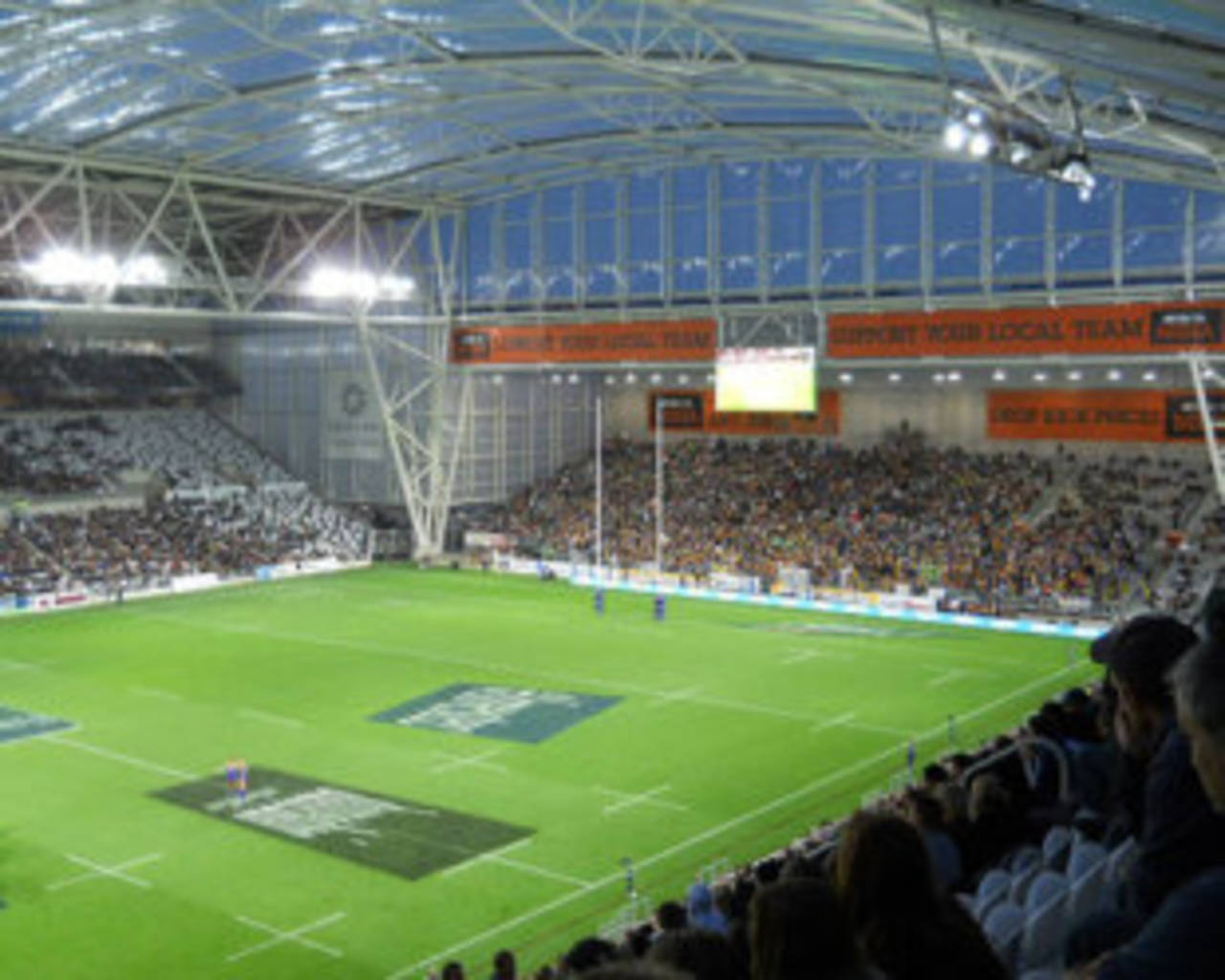"Rugby is to New Zealand what cricket is to India," Nathan McCullum said, when talking about the difference in following between the two sports in the country. He didn't add it's also probably what football is to South America, but he didn't have to. The point had been made.
Having watched cricket in India and football in South America, I had to complete the triangle and the circumstances combined to make sure I did. The Forsyth Barr Stadium is right next to University Oval, which means one can spend 12 hours - from a 9.30 am arrival at the cricket through to a 9.30pm finish at the rugby - immersed in sport.
Saturday's night's fixture was a trans-Tasman clash between the Highlanders and the Waratahs, described by one of the local reporters as a "great chance for New Zealanders to enjoy some success over Australians." This stadium has only been in operation since last year's World Cup and replaces the Carisbrook Stadium, aka the "House of Pain", as the only rugby venue in the city. It's also only the second indoor rugby venue, after Cardiff's Millennium Stadium, and the roof is much needed. The wind, rain and cold combined to into an uncomfortable cocktail, one appreciably negated by the covering.
The other option was to huddle into an area called "The Zoo", which sounds as interesting as it is. Also known as the student zone, it is the only stand behind the goalposts (the other side has an area for the team bus and not much else) and the cheapest spot in the stadium, in terms of ticket prices.
People don't actually watch much of the match from The Zoo. Music plays throughout the game, people dressed up as various animals are on their feet and spend the eighty minutes singing, clapping their hands and generally being a secondary source of entertainment.
A wonderful sense of community and tradition floods The Zoo and the entire stadium - it's as though everyone in Dunedin had made their way into the stadium for the match. It kicks off with a Scottish pipe band, who march around the perimeter, a reminder of the colonial influence in the oldest city in the country. Everyone gets involved. The local primary school's team led out the Highlanders and young boy who got to place the ball in the kicking tee was also from the area.
Superrugby has become a monster, with very many matches over a long, long period of time and often the significance of supporting your home side is lost. Not in Dunedin, though. The ample crowd of over 20,000 cheered on their team as though it was the World Cup final and boo-ed the Waratahs with the same gusto. One of the jeers was loud enough that it may actually have caused Daniel Halangahu to miss what could have been a decisive penalty kick.
The rugby played between the two sides was fast-paced and energetic, significantly different to the usual kick and run style South Africans get used to, which made it fascinating to watch. We all rooted for the home team, given that we were in their territory and, at the end, the Highlanders hung on to win by one point and stay on top of the New Zealand conference table.
They started the celebrations in front of The Zoo, where the players had begun to interact with some of their fans. There's a theory in New Zealand that there should be no superstars, that sportsmen are just people too and that nobody should get too big for their own good. We've seen it plenty of times with their cricketers, who recognise fans, treat them well and behave like regular members of society. It was a good to see the same applied to their rugby players too.
Firdose Moonda is ESPNcricinfo's South Africa correspondent
